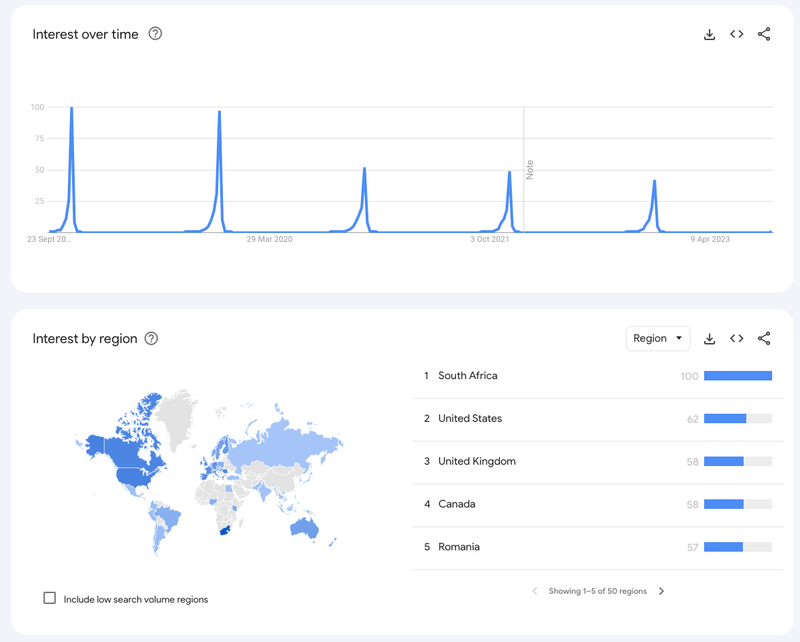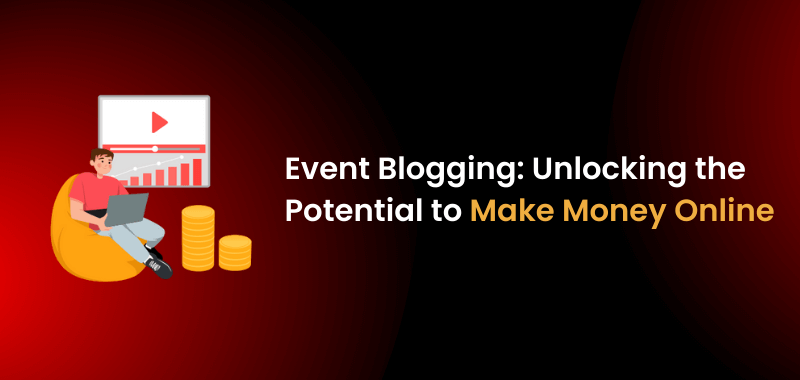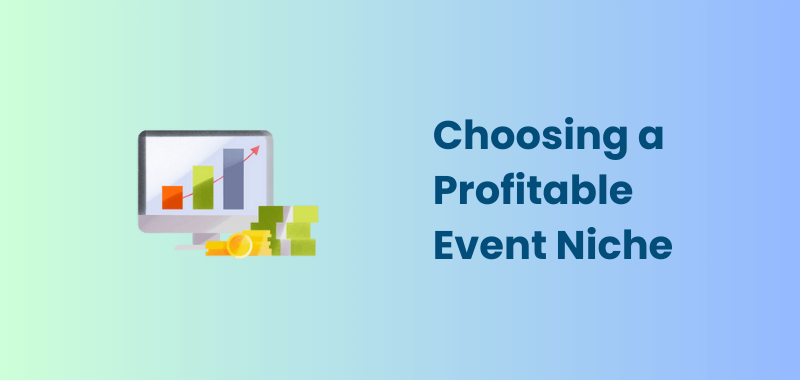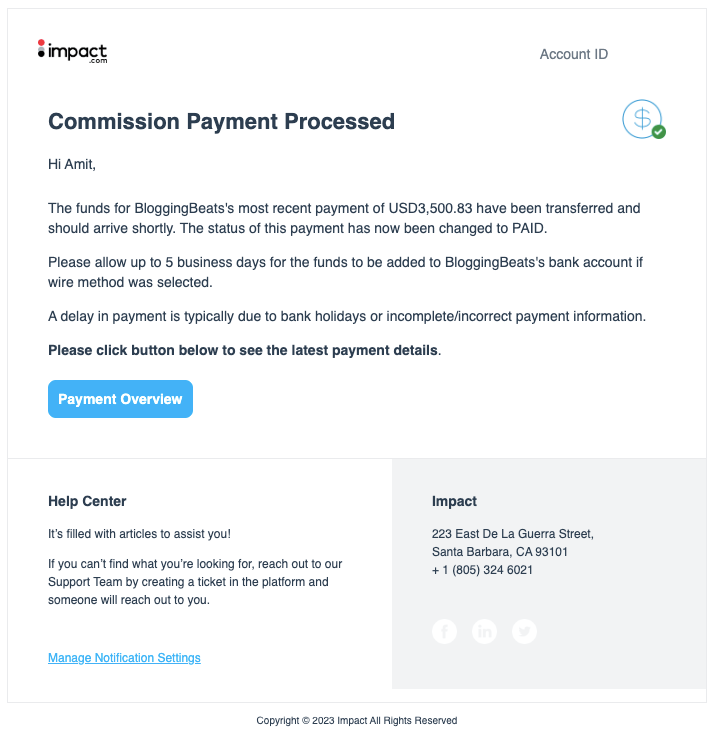Have you ever wondered how bloggers make money by writing about seasonal events like Black Friday, Valentine’s Day, or the latest iPhone launch?
Welcome to the world of event blogging!
Event blogging involves creating content centered around upcoming events, product releases, holidays, or cultural moments.
By tapping into these timely topics, you can grow an engaged audience and generate income through advertising, affiliate marketing, and other monetization strategies.
Keen to learn more about event blogging? Let’s get started.
Table of Contents
What is Event Blogging & Why Is It So Lucrative?

Event blogging refers to creating a blog that covers specific events, releases, news, holidays, festivals, and more as they occur over time.
For example, an event blog may cover:
- Product launches like the new iPhone or PlayStation
- Major sporting events like the Football World Cup or Olympics
- Cultural festivals like Diwali, Christmas, Halloween, etc.
- Exam seasons for students
- Awards shows and entertainment events
Event blogging allows you to capitalize on rising search volume and interest around these evergreen and seasonal topics.
Around big events, people actively search for things like “Black Friday toy deals” or “DIY Valentine’s crafts”.
By creating content around these high-interest topics, you can attract highly motivated visitors who want to purchase relevant products or learn more during the event itself.
According to Google Trends data, interest in “Black Friday” as a search term peaks in November every year:

And, this is common across many different events – interest rises leading up to the event, peaks during the event, and then declines afterward.
As an event blogger, you can ride these waves of interest by closely aligning your content focus with the event calendar.
We’ve also created a Black Friday category on this blog which has over 30 posts. We’ve been doing Black Friday event blogging for the last 3 years and generated approx. $17,000 in blogging revenue.
Additionally, event blogging comes with several advantages:
1. More Search Volume Opportunities
Event blogging taps into seasonal spikes in search volume, allowing you to attract more targeted visitors around high-interest topics.
2. Higher Ad Rates
Advertisers are willing to pay more around major events relevant to their products. Expect higher CPM and CPC rates with event-focused content.
3. Ability to Recycle Evergreen Content
Much of your event content can be refreshed, updated, and repurposed year after year. Your existing content assets continue generating traffic and revenue.
4. Predictable Traffic Spikes
Events lead to more organic and direct traffic around the date itself as interest peaks. Prepare for your bandwidth!
5. Holiday Shopping Sales
Many events like Christmas and Black Friday coincide with busy shopping periods when affiliate commissions and sales are at their peak.
Now that you know what event blogging is and why it represents an attractive opportunity, let’s look at long-term vs. short-term approaches.
Long-Term vs. Short-Term Event Blogs
There are two main approaches you can take for event blogging:
1. Long Term Event Blogging
This involves creating an event blog focused on a particular niche that has multiple events throughout the year.
For example, you may start a blog focused on major tech product launches, annual awards shows, major sporting championships that recur every year, and so on.
The benefit of this model is that once you build an audience around a niche, you can capitalize on the recurring traffic spikes around related events. It takes more initial effort but results in a more sustainable long-term business.
2. Short Term Event Blogging
Here you quickly create blogs targeting specific one-off events that won’t reoccur in the future.
For example, you may create a blog just about the next iPhone launch, the upcoming World Cup, or an election event.
The advantage is you can get them up and running faster to take advantage of the immediate traffic surge.
However, the window of opportunity is smaller and you’ll need to keep identifying new short-term events.
For beginners, we recommend starting with short-term event blogging to quickly test it out and learn the basics.
Once you get the hang of it, you can graduate to niche long-term event blogging.
Now let’s look at how to identify profitable event niches and topics.
How to Create An Event Blog & Make Money from Event Blogging in 2024?

Step 1: Choosing a Profitable Event Niche for Your Blog

The key is choosing an event topic where there is high demand from searchers but relatively low competition from other bloggers.
Here are some criteria to use:
1. Search volume: Use Google Keyword Planner and Google Trends to gauge search interest. Target over 10k monthly searches for main keywords.
2. Competition: Check Google results and filter by the past year. Aim for topics with <100k total results and opportunities to rank on page 1.
3. Trends: Look for upward trends around events rather than dying ones. For example, Christmas and the Olympics are evergreen but Harlem Shake is not.
4. Revenue potential: Consider affiliate, ad, and other monetization opportunities around the event niche.
5. Available content: Ensure there are enough information, stats, data, and multimedia assets available to create content without too much original reporting.
Here are some popular event categories that tend to work well:
- Product Launches
- Sporting Events
- Award Shows
- Cultural Festivals
- Education & Career
- Shopping Events
Research Keyword Difficulty and Competition
Once you’ve brainstormed some potential event niches, validate the opportunity with keyword research.
Use a tool like Semrush to analyze search volume trends and keyword difficulty scores.
Look for topics with strong search volume, low competition, and commercial intent.
The keywords shouldn’t be completely saturated but still popular enough to drive steady traffic.
Avoid events that larger sites like Amazon have completely dominated. Try searching Google for “Black Friday [your topic]” and see if big brands pop up or if there are opportunities to rank.
Tap into Evergreens vs. One-Off Events
Some events like Black Friday occur every year while others like the World Cup only happen once every 4 years.
It’s best to focus on regularly occurring events as the backbone of your blog since they provide recurring spikes in traffic you can rely on.
However, you can still supplement evergreen events with one-off cultural moments as they arise to keep your content mix feeling fresh.
Brainstorm Related Events and Hooks
The best event blogs don’t just cover the main event itself but also related events, angles, and hooks before, during, and after.
For a Black Friday blog, you could create content like:
- Predictions for Top Black Friday Deals
- Black Friday Shopping Hack Videos
- Cyber Monday Tech Deals
- Black Friday Statistics Post-Event Recap
This provides more opportunities to extend your coverage window, rank for a wider range of keywords, and keep producing fresh content.
Analyze Past Examples and Success Stories
Find blogs in your niche that have successfully implemented event blogging. See what type of content performs well and use them as proven examples to model.
Now that you’ve selected a profitable event topic, let’s look at how to set up your event blog.
Step 2: Set Up Your Event Blog

Your event blog needs a platform that allows easy publishing, customization, and search engine visibility. That’s where WordPress comes in.
Here are the step-by-step instructions to set up your event blog with WordPress:
Register a Domain Name
Pick a domain name related to your niche or brand. For example:
- iphonelaunchinfo [dot] com
- fifacoverage [dot] com
- holidayrecipes [dot] com
- diyhomechristmas [dot] com
- blackfridaybonanza [dot] com
Keep it short and memorable. Include important keywords where possible.
Popular domain registrars include GoDaddy, Namecheap, etc.
Get Web Hosting
Hosting provides the storage and servers to host your files and make your blog accessible online 24/7.
We recommend going with WordPress hosting like Hostinger for optimal speed and security. Their optimized servers and automatic WordPress installation and updates ensure your site stays secure and performs well.
Hostinger shared hosting plans start around $2.99 per month.
And, All plans include;
- Free Domain Name
- Automatic WordPress Installation
- SSL Certificates
- Automatic backups
- Malware Scans
- Drag & Drop Website Builder
- Exclusive Deal: Hostinger Promo Code 2024 (Up to 90% OFF)
Install WordPress
Once you have hosting, you can install WordPress with one click from the control panel (based on your hosting provider). This will set up the CMS that powers your blog.
After that, create an admin account. This gives you access to the WordPress dashboard to manage your site.
Choose a Theme
Themes control the appearance and layout of your blog. Pick an SEO-friendly, mobile-responsive theme designed for blogging. Some of the popular free theme options include
For more options, you can choose from premium themes at marketplaces like ThemeForest and Elegant Themes.
Install Essential Plugins
Plugins add extra functionality to WordPress. For event blogging, some useful free plugins include:
- Rank Math SEO – Optimizes content for better search rankings
- WPForms – One of the best drag & drop WordPress form builder
- Akismet – Intelligent spam detection
- All In One SEO – Simplifies search optimization
- WP Rocket – The most powerful caching solution to boost speed and performance, and optimize your Core Web Vitals.
- UpdraftPlus – Reliable WordPress backup and restore
- OptinMonster – Boost conversions and email lists
- MonsterInsights – Effortless Google Analytics integration
Always, check for plugin compatibility and keep them updated for security.
Avoid going overboard with too many plugins that slow your site down.
Set Up Analytics & Search Console
Finally, sign up for free accounts at:
- Google Analytics – To connect to your WordPress site and track visitor traffic and engagement.
- Google Search Console – Allows you to monitor SEO metrics like keyword rankings, top-performing content, backlinks, and more.
- Bing Webmaster Tools – Equivalent of Search Console for Bing rankings.
This completes the setup process. You now have a content management platform optimized for event blogging ready to go!
Step 3: Optimizing Event Blog Content for Higher Rankings

Creating high-quality, SEO-optimized content is crucial for driving traffic and revenue from event blogging. Here are proven tactics to optimize your content:
Perform In-Depth Keyword Research
Use keyword research to identify high-volume keywords and questions people search around your event topic. Some tools to find keyword ideas include:
- Google Keyword Planner – See monthly search volumes.
- Answer the Public – Reveals common questions people ask.
- Semrush – Supercharge your content marketing.
Analyze keywords by expected traffic, difficulty, and commercial value. Choose a primary keyword, secondary keywords, and long tail versions for each post.
Craft Compelling Titles and Headings
Your headline and H2/H3 tags are critical for SEO and click-throughs. Follow these best practices:
- Incorporate your focus keyword naturally – like “A Beginner’s Guide to Black Friday Shopping”
- Use numbers and lists – “The Top 5 Black Friday Clothing Sales for 2024”
- Ask questions – “What Are the Best Black Friday Web Hosting Deals in 2024?”
- Use brackets or parentheses – “Black Friday Sale 2024 [Everything You Need To Know About]”
- Address emotions – “Feeling Overwhelmed by Black Friday Shopping? Here’s How to Stay Sane”
Structure Content with SEO in Mind
Beyond just keywords, structure your content for readability and SEO:
- Use brief paragraphs and subheadings to break up text
- Make the most important information top-heavy
- Include keyword-rich image file names and alt-text
- Link out to authority sources and internal posts
- Close with a summary driving people to take action
Prominently Feature Target Keywords
Work your primary keywords into:
- The meta title and description
- Image file names
- First and last paragraphs
- Subheadings
- The URL slug if possible
- Image alt text
- Bolded 2-4 times in the body content
This ensures search engines clearly identify the topic focus. But avoid over-optimizing. Readers come first.
By following SEO best practices, your event content will attract more organic traffic from search engines.
Now let’s explore ways to amplify your reach further.
Step 4: Promoting Your Event Blog Like a Pro

It takes both on-page SEO as well as active promotion to drive traffic to your event blog:
1. On-Page SEO Optimization
This covers optimizing your blog content itself for search visibility:
- Competitor research – Analyze competitors’ ranking on page 1 of Google for your target keywords. Emulate what they do well.
- Keyword research – Identify low competition long tail keywords people search when looking for your content. Optimize accordingly.
- Metadata – Include focused keywords in titles, headings, Meta descriptions, alt text, URLs, etc.
- Internal linking – Link relevant posts together so Google indexes them better.
- Page speed – Optimize images, enable caching, and minify CSS/JS to improve site speed. Faster sites rank better.
- Schema markup – Use structured data for events, products, videos, articles, etc. to enhance listings.
- Quality content – Well-researched, extensive content signals authority to Google.
This ensures your posts appear for relevant searches and snippets/listings entice clicks.
2. Link Building Strategies
Getting backlinks from other sites signals credibility and boosts rankings:
- Guest posting – Reach out to websites in your niche to contribute event-focused guest articles with a link back.
- Link roundups – Create roundup posts linking to the best content around an event which earns backlinks.
- Infographics – Create visual data charts and link to your blog as the source. Share them on infographic sites.
- Blogger partnerships – Collaborate on co-created assets like guides, quizzes, etc., and link to each other.
- Influencer mentions – Get event-specific micro-influencers with engaged followers to mention your content.
- Social promotion – Get retweets, shares, and engagement on your posts from relevant accounts to build social signals.
Slow and steady link building over time raises domain authority for sustainable rankings.
3. Leveraging Social Media
Promoting your content across social platforms helps expand your reach:
- Facebook Groups – Join and post your content in Facebook Groups dedicated to your event niche.
- Quora space – Answer event-related questions on Quora and link to your pieces as references.
- Reddit threads – Share your content where permissible in appropriate Reddit threads around the event.
- YouTube – Create or curate videos around the event and promote them on YouTube.
- Pinterest – Create eye-catching pins linking to your content for visibility in Pinterest searches and feeds.
- LinkedIn – Post your content in relevant LinkedIn Groups and also use the publishing platform.
- Twitter chats/threads – Find relevant conversations around event hashtags to share your posts.
The key is engaging social users when they are actively discussing your event niche rather than untargeted spamming.
4. Tracking and Analyzing Performance
It’s crucial to track key metrics to understand what’s working and optimize further:
- Use Google Analytics to monitor traffic volume, sources, top pages, conversions, and other behavior.
- Check the Search Console for rankings, clicks, and impressions for target keywords.
- Analyze social metrics like follows, shares, and engagement for your profiles and posts.
- Run AB tests on headlines, content formats, designs, calls to action, etc. to improve performance.
- Identify strengths, weaknesses, opportunities, and threats (SWOT analysis) for your blog.
- Track ROI metrics if running paid ads to ensure positive returns. Tweak targeting, bids, creatives, etc. as needed.
- Set up dashboards to monitor essential metrics in one place for an overview.
Analyzing performance data will reveal insights into optimizing content, promotion, and monetization.
Step 5: Monetizing Your Event Blog

Driving traffic alone is not enough – you need ways to generate income from your event blog:
1. Display Advertising
Display ad networks like Google AdSense allow you to join for free and paste ad code on your site to automatically display relevant ads. You earn money when visitors click on them.
Ways to maximize earnings:
- Place ads smartly without hampering user experience. Test placements.
- Create dedicated ad placements like sidebars, content widgets, footer banners, popup/overlay units, etc.
- Make use of a variety of ad units – text, image, video, etc.
- Enable auto ads for personalized ads based on content.
- Use ad management plugins like Ad Inserter to optimize and rotate multiple ad networks.
- Join other networks like Media.net, Ezoic, and Infolinks as fallback options.
With good traffic volumes, display ads can become a steady passive income stream.
2. Affiliate Marketing
Sign up with affiliate networks like Amazon Associates, eBay Partners, etc. to promote their products and earn commissions per sale.
Ways to boost affiliate income:
- Find products relevant to your event audience and promote them.
- Create curated deals/discounts posts, gift guides, etc., and embed affiliate links.
- Add affiliate links to naturally blend into existing content.
- Use affiliate links in social media captions.
- Enable coupon codes and other incentives for additional earnings per sale.
- Promote newly launched event-related products to tap into hype.
Affiliate marketing works best when you’re able to match engaged visitors with products they’re most likely to purchase.
Give a swift look to one of our most recent affiliate earnings, which totals $3500, and it’s all thanks to a single affiliate network.

It’s rather fantastic, isn’t it?
3. Sponsored Posts
Accept paid sponsorships from relevant brands who want to get visibility in front of your audience.
Best practices for sponsored posts:
- Maintain editorial control over the content and only partner with brands you trust.
- Ensure sponsored posts match your blog’s niche and appeal to readers for authenticity.
- Clearly label and disclose sponsored content as per FTC guidelines.
- Limit to 1-2 posts per month maximum to avoid overwhelming organic content.
- Avoid over-promoting the sponsor. Focus on useful information and value for readers first.
- Negotiate premium CPM and CPC rates based on your audience and engagement metrics.
When done right, sponsored posts are a win-win generating income for you while giving brands access to your audience.
Keys to Success and Pitfalls to Avoid with Event Blogging
1. Choose Evergreen Niches
Stick to evergreen events that recur annually rather than one-off fads. This ensures recurring search volume and traffic year after year. For example, focus on holidays, cultural events, or industry conferences.
2. Avoid Overly Competitive Keywords
Don’t target primary keywords where large sites already dominate first-page rankings. Instead, research long tail variations with lower competition but still substantial search volume.
3. Create Truly Useful Content
Don’t just publish thin content to target keywords. Provide extensive value by educating and informing readers on all aspects of an event. Good content builds links and earns traffic over time.
4. Update Old Content
Refresh your evergreen content regularly with new data, tips, stats, and trends to keep it ranking well. Outdated content will stagnate in search results.
5. Promote Without Spamming
Promote your content across social media, email, and other channels without spamming. Bring value where you share by commenting and engaging rather than just dumping links.
6. Build a Genuine Link Profile
Earn backlinks slowly over time by contributing guest posts to authority sites in your space. Avoid shady practices like buying links that can get you penalized by search engines.
7. Avoid Over-Reliance on One Income Stream
Don’t depend solely on Google AdSense, for example. Diversify with affiliate marketing, sponsorships, and other monetization options to mitigate risk.
8. Limit Low Quality Sponsored Posts
Accepting low-quality sponsored posts from any advertiser just for money can damage your reputation and trust with readers. You have to maintain standards.
9. Monitor Analytics Closely
Analyze your traffic sources, engagement metrics, conversions, and ROI regularly. Remember to use data to optimize your approach for better results.
10. Beware of Content Theft
Your unique content may get scraped or republished by spam sites. Implement DMCA takedowns and consider enabling copyright protections.
11. Maintain a Balance of Commercial Content
Keep a healthy balance between monetized content focused on revenue vs. organic non-commercial content focused on providing value.
12. Focus on Readers Not Just Search Engines
While SEO and rankings are important, don’t go overboard. Ultimately, creating content your audience loves should be the top priority.
13. Keep Design On Brand
Don’t let your blog’s design be dictated by temporary trends. Maintain a consistent visual brand and layout for the long haul.
14. Stay Patient
Success doesn’t happen overnight. Consistently keep publishing quality content while slowly improving and event blogging profits can scale over years.
15. Avoid Being Penalized
Follow search engine guidelines and best practices to avoid penalties. For example, don’t buy links or stuff keywords.
16. Watch for Burnout
Event blogging involves lots of upfront work. Set a sustainable pace for yourself. It’s a marathon, not a sprint.
By sticking to these principles, you can build an event blog that not only attracts organic traffic but also generates diversified income without compromising quality.
Avoid short-term thinking and focus on providing consistent value over time.
FAQs About Event Blogging
Here are a few most frequently asked questions about event blogging that you may find useful.
Event blogging is a type of niche blogging where bloggers create a blog dedicated to a specific event or occasion. These blogs are also considered as “Micro niche blogs” and focused solely on providing information, updates, and content related to that particular event.
Register a domain, get hosting, install WordPress, choose a theme, add plugins, and set up analytics. Then create optimized content around your event niche.
Yes, Event blogging allows you to earn income by leveraging seasonal spikes in search volume and tapping into recurring evergreen traffic year after year.
Use display ads, affiliate marketing, and sponsored posts to monetize your event blog’s engaged audience while consistently publishing high-quality content to grow your readership.
Both event blogging and regular blogging have pros and cons. Event blogging taps into timely trends for spikes in traffic but requires more effort to continually create new event-related content. Regular blogging builds more evergreen content that increases value over time through recurring search traffic.
Also Read:
- How to Start a Micro Niche Blog and Maximize Profits in 2024
- How to Start a Travel Blog and Make Money From It in 2024
- How to Start a Food Blog and Make Money Online in 2024
- How to Start a Soccer Blog and Make it Profitable in 2024
- The Ultimate Guide on Starting a Successful Fashion Blog in 2024
- Top 16 Blogging Mistakes To Avoid in 2024 (For Amateur Bloggers)
- Benefits of Blogging: 9 Reasons You Should Have a Blog in 2024
- The Future of Blogging in 2024: Trends and Predictions
Final Thoughts on Event Blogging in 2024
Event blogging represents an attractive opportunity in 2024 and beyond.
By aligning your content calendar with major events throughout the year, you can capitalize on rising search volume and interest around these timely topics.
Whether you focus on recurring evergreen events or seasonal one-off moments, event blogging allows you to attract engaged visitors precisely when they are most motivated to learn, shop, and take action.
And the beauty is that much of your content can be refreshed and repurposed year after year.
However, success doesn’t happen overnight. You need to lay the groundwork with niche research, SEO optimization, promotion strategies, and diversified monetization channels.
Event blogging requires consistently producing relevant, high-quality content that actually helps readers.
If done right, you can build an audience that keeps returning while benefiting from predictable traffic and revenue surges around major happenings. The opportunity is there for the taking in 2024.
So start brainstorming those seasonal topics now. Research profitable niches. Sharpen your content skills. And get ready to ride those waves of interest all the way to the bank!
With a smart event-focused approach, your blogging business can thrive this year and beyond.
